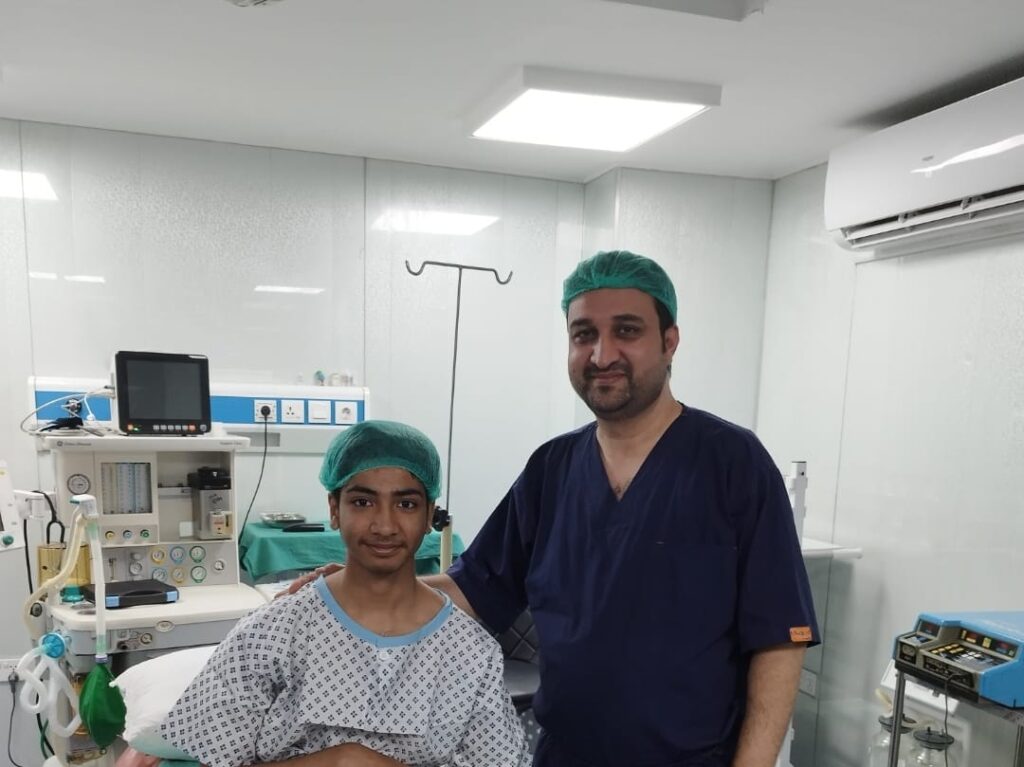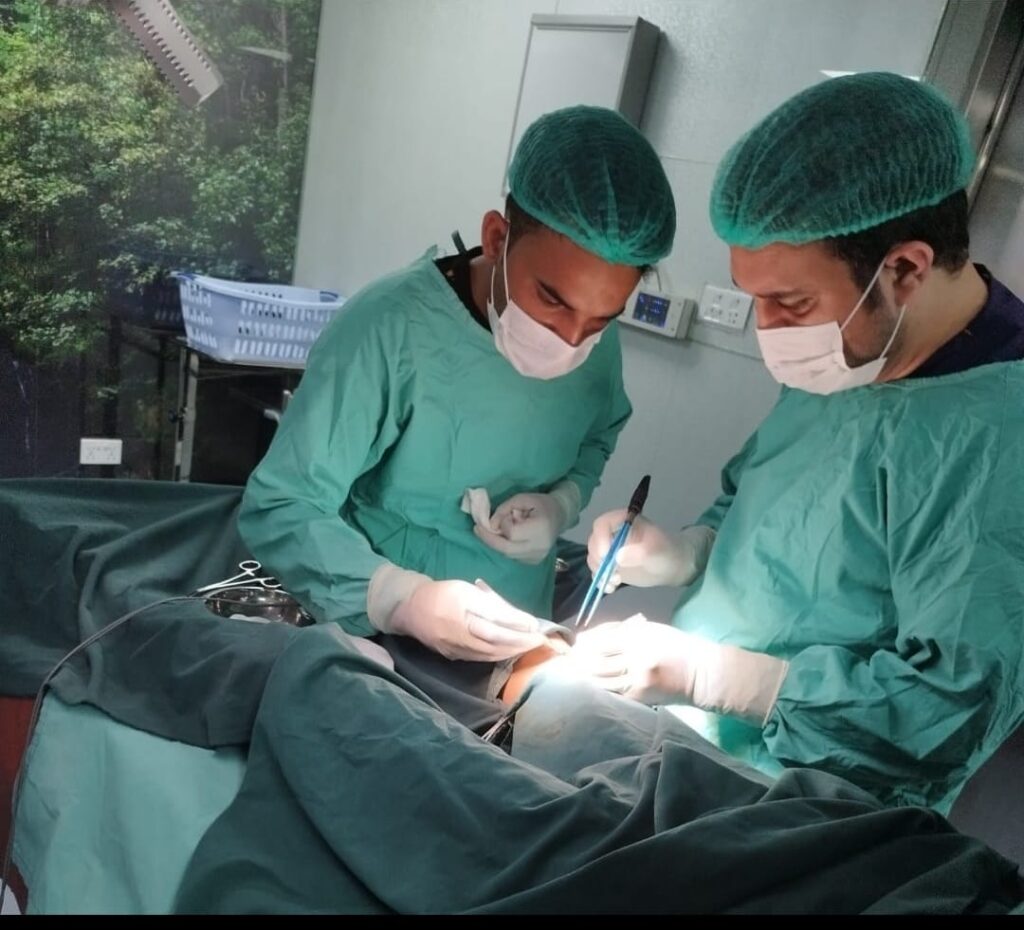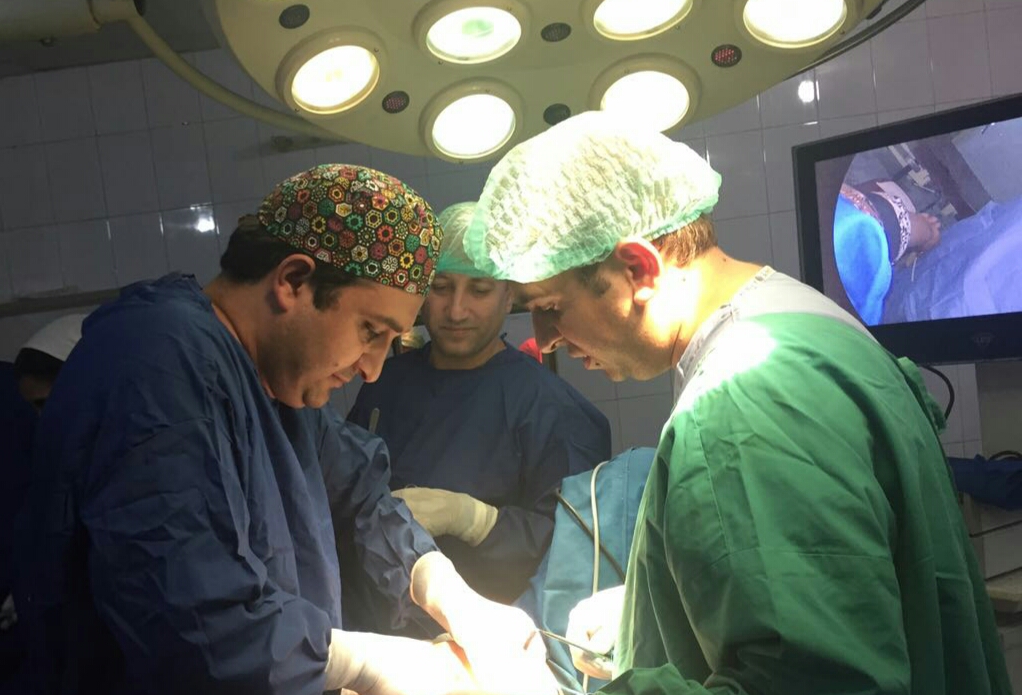- contact@laparoscopyadvice.com
- General Practice Hospital, G-9/2 Islamabad
- Mon - Fri: 10:00 am - 7:00 pm
Visiting Hours
| Mon - Fri: | 8:00 am - 8:00 pm |
| Saturday: | 9:00 am - 6:00 pm |
| Sunday: | 9:00 am - 6:00 pm |
Gallery Posts






| Mon - Fri: | 8:00 am - 8:00 pm |
| Saturday: | 9:00 am - 6:00 pm |
| Sunday: | 9:00 am - 6:00 pm |







Introduction
Perforated ulcers, though relatively rare, pose a severe threat to digestive health. This article aims to shed light on the nature of perforated ulcers, from their definition to preventive strategies and available treatment options, stressing the importance of timely recognition and intervention.
What is a Perforated Ulcer?
A perforated ulcer occurs when a hole develops in the wall of the stomach or small intestine, allowing digestive juices and food to leak into the abdominal cavity. Understanding the causes and risk factors leading to ulcer perforation is crucial for individuals seeking information about this serious condition.
Causes and Risk Factors Leading to Ulcer Perforation
Exploring the various factors, such as long-term use of nonsteroidal anti-inflammatory drugs (NSAIDs) and infection with Helicobacter pylori, provides insights into the complexities of ulcer perforation and helps individuals assess their risk.
Signs and Symptoms
Recognizing the signs and symptoms of a perforated ulcer is crucial for immediate medical attention. From sudden, severe abdominal pain to signs of shock, understanding the variations based on the severity of perforation aids in prompt intervention.



Variations in Symptoms Based on Perforation Severity Distinguishing between symptoms based on the severity of ulcer perforation assists healthcare professionals in tailoring appropriate diagnostic and treatment plans.
Diagnosis Accurate diagnosis of a perforated ulcer involves a combination of clinical evaluation, imaging studies, and laboratory tests. This section explores the diagnostic procedures and emphasizes the role of medical professionals in this process.
The Role of Medical Professionals in Accurate and Timely Diagnosis Underscoring the importance of seeking professional medical advice ensures individuals receive proper diagnosis and immediate intervention.
Emergency Treatment Perforated ulcers require immediate attention due to their life-threatening nature. This section outlines the emergency steps taken to stabilize the patient and prepare for surgical intervention.
Surgical Intervention Repairing a perforated ulcer often involves surgical procedures. Exploring these options and considering the factors influencing their suitability provides individuals with the necessary insights for making decisions regarding their treatment.
Considerations and Outcomes of Surgical Treatment Delving into surgical interventions, such as closure of the perforation and addressing underlying causes, helps individuals understand the complexities and potential outcomes of these procedures.
Recovery and Post-Treatment Care Rehabilitation and recovery after perforated ulcer surgery are critical aspects of treatment. This section guides individuals on what to expect during the recovery process and emphasizes the importance of long-term considerations and follow-up care.
Long-Term Considerations and Follow-Up Care Highlighting the importance of follow-up care ensures individuals maintain optimal health and reduce the risk of complications or recurrence.
Complications Untreated or complicated perforated ulcers can lead to various complications. This section explores potential complications and underscores the importance of adherence to medical advice for preventing adverse outcomes.
Importance of Adherence to Medical Advice Emphasizing the need for strict adherence to medical recommendations, including medications and follow-up appointments, contributes to a more favorable recovery and reduces the risk of complications.
Prevention Strategies While not all cases of ulcers can be prevented, certain strategies can reduce the risk of development and complications. This section outlines steps individuals can take to maintain gastrointestinal health and minimize the likelihood of ulcer perforation.
Lifestyle and Dietary Recommendations for Ulcer Prevention Providing practical recommendations on lifestyle and dietary choices empowers individuals to take proactive steps towards preventing ulcers and their complications.
Similarities and Key Distinctions Highlighting the similarities and differences aids in clarifying misconceptions and fostering a deeper understanding of gastrointestinal health.
Frequently Asked Questions (FAQs)
Perforated ulcers typically require surgical intervention for repair. Delaying treatment may lead to severe complications.
Long-term effects depend on factors such as the severity of perforation and timely intervention. Strict adherence to post-treatment care reduces the risk of complications.
While H. pylori infection is a common cause, factors like NSAID use can also contribute to ulcer perforation. Identifying the underlying cause is crucial for effective treatment.
Stress alone is not a direct cause, but it may exacerbate existing gastrointestinal conditions. Managing stress is essential for overall well-being.
While specific dietary recommendations may vary, individuals are often advised to follow a balanced and easily digestible diet during the initial stages of recovery.
| Mon - Fri: | 9:00 am - 7:00 pm |
| Saturday - Sunday: | Off |
Copyright 2023 Adil's Laparoscopy World | Powered by Dynaamx